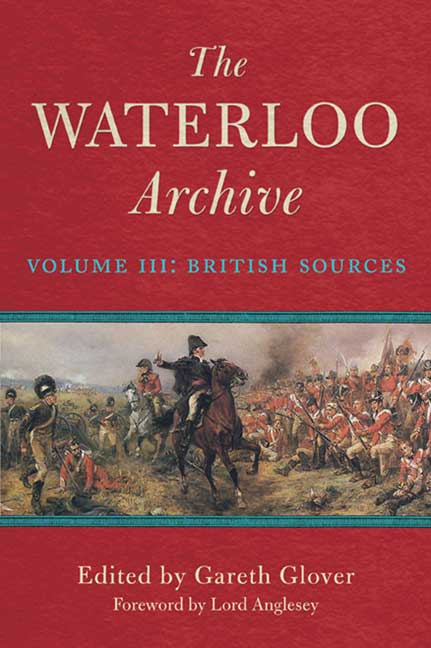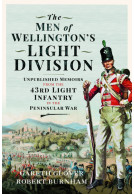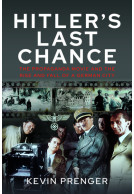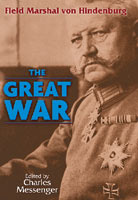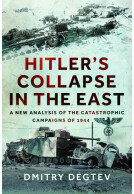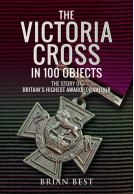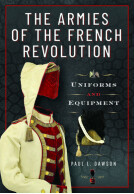The Waterloo Archive: Volume III (Hardback)
The British Sources

Pages: 304
ISBN: 9781848326057
Published: 7th February 2012
(click here for international delivery rates)
Need a currency converter? Check XE.com for live rates
| Other formats available - Buy the Hardback and get the eBook for free! | Price |
|---|---|
| The Waterloo Archive: Volume III ePub (1.4 MB) Add to Basket | £6.99 |
Volume III of the remarkable Waterloo Archive series is brimming with personal letters and private journals written by participants in the campaign. By reading them we can share the innermost thoughts of those involved in the fighting, experience the agonies of those who lost someone, and see the pain and suffering inflicted on the thousands of wounded. The horrors of war are laid bare, but so also is the relief and happiness of survival.
This fascinating collection includes the poignant final letters from men who lost their lives that day; an account by a civilian visitor to the area six weeks after the battle end; and a very interesting letter by Second Lieutenant Richard Cocks Eyre of the 2nd Battalion 95th Rifles which makes a mockery of the myth that British troops did not openly plunder the local farmhouses before the battle for food and fuel to burn.
Each letter has something new to say; in fact, they prove beyond doubt that our 'accepted' history of the battle and campaign is wrong in many aspects, and a complete rewrite of certain episodes will eventually be required. This is an extremely important new book, expertly researched and edited, and essential reading for anyone interested in the Waterloo campaign.
The volume has many gems. One for me is the confirmation that Lieutenant Colonel and Brevet Colonel Joseph Muter, 6th Dragoons, recovered from his Waterloo wound in time to resume command of the 2nd (Union) Cavalry Brigade until the army was broken up. Another is the speculation by an artillery officer that the Duke of Wellington would ignore senior artillery officers, as he had done in the Peninsula, and again chose his own commander of the artillery for Flanders.
The Napoleon Series - August 2012 - reviewed by Ron McGuigan
Volume III is a worthy addition to the history of Waterloo and 1815. Highly recommended.
If you want to know the men - read these books.
Clash of Steel
This collection will be an invaluable resource for future generations.
Classic Arms & Militaria
If you read nothing else about Waterloo in its 200th anniversary year, you should read this.
Historians and students of the 1815 campaign will find fresh items of real value in these books, filling gaps in the record.
British Army Review
About Gareth Glover
Gareth Glover is a former Royal Navy officer and military historian who has made a special study of the Napoleonic Wars for the last thirty years. In addition to writing many articles on aspects of the subject in magazines and journals, his books include From Corunna to Waterloo, Eyewitness to the Peninsular War and the Battle of Waterloo, An Eloquent Soldier, fourteen volumes of The Waterloo Archive, Waterloo: Myth and Reality, The Forgotten War Against Napoleon: Conflict in the Mediterranean 1793-1815, The Two Battles of Copenhagen 1801 and 1807: Britain and Denmark in the Napoleonic Wars and Marching, Fighting, Dying: Experiences of Soldiers in the Peninsular War.
About The Marquess of Anglesey
Lord Anglesey, born in 1922, lived in his ancestral home, Plas Newydd, on the Isle of Anglesey, which he handed over to the National Trust in 1976.
He was Vice- President of the Society of Army Historical Research, President of the Victorian Military Society and of the Crimean War Research Society.
Another of his interests was shown by his past chairmanship of the Historic Buildings Council for Wales. He was also President of the Ancient Monuments Society, a founder member of the Redundant Churches Fund and of the National Heritage Memorial Fund and a Trustee of the National Portrait Gallery.
He was a Fellow of the Society of Antiquaries, the Royal Historical Society, the Royal Society of Literature and an Honorary Fellow of the Royal Institute of British Architects. He was also an Honorary Doctor of Literature of the University of Wales and was Lord Lieutenant of Gwynedd in the 1980s.
He passed away, aged 90, in July 2013.







